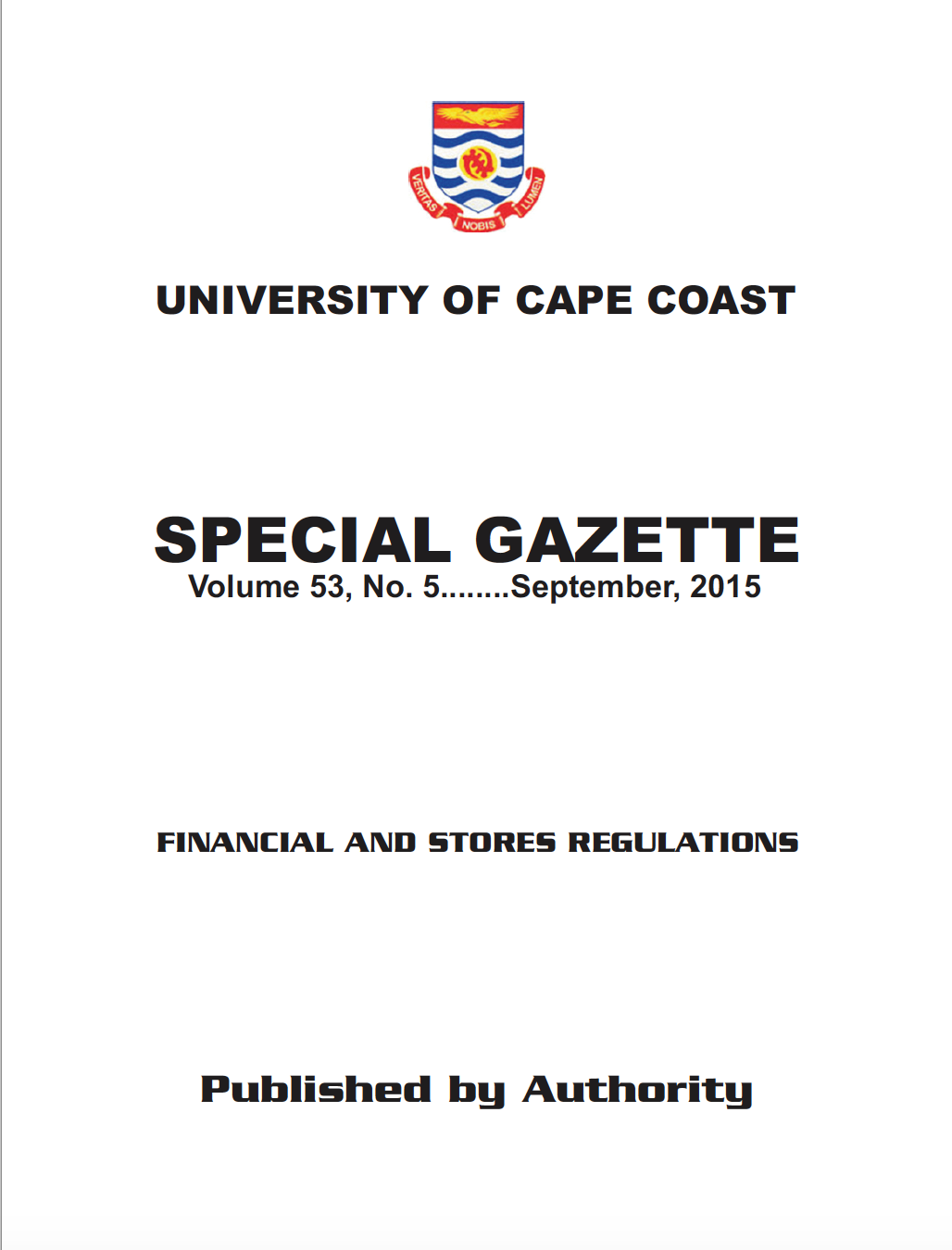The control and disposition of all University property, funds and investments are vested in the University Council under Section 10 (page 5) of the University of Cape Coast Law 1992, PNDC Law 278 which succeeded the University of Cape Coast Act, 1971, (Act 390) and also by Statute 14 of Statutes 2012 (page 18) which provide as follows:
The Council shall be responsible for the management and administration of the finances and properties of the University. Council shall have general control over the affairs and public relations of the University including the use of the common seal of the University.
Without prejudice to the generality of provisions of the Law, Council shall:
-
Control the finances of the University and shall have power to determine finally any question of finance arising out of the administration of the University or the execution of its policy or in the execution of any trust by the University, provided always that before determining any question of finance which directly affects the educational policy of the University, Council shall invite the opinion of the Academic Board and shall take into consideration recommendations made by the Academic Board.
-
Be responsible for all measures necessary or desirable for the conservation or augmentation of the resources of the University. For this purpose, the University Council may from time to time specify any matter affecting the income or expenditure of the University in respect of which the consent of Council shall be obtained before action is taken or liability is incurred.
-
Annually determine the expenditure necessary for the maintenance of:
-
Property of the University
-
An adequate staff for transacting the academic, financial and administrative business of the University, and shall, in its discretion, appropriate monies for these purposes.
-
-
Council shall keep books of accounts and proper records in relation to them. The account books and records shall be in the form approved by the Auditor-General, who shall audit them and forward a report to Council.
-
Council shall pay in respect of the audit such fees (if any), as the Auditor-General and the Council may agree on, or in the case of failure to agree, such as the Chancellor may determine.
-
Council shall forward the report received from the Auditor-General with its comments to the Minister responsible for Education for onward transmission to the Government.
Finance Committee
There shall be a Finance Committee which, subject to the general policy, control and with guidance of Council, shall on behalf of Council, perform the executive functions of Council with regard to all financial matters coming within the functions of Council prescribed by and subject to the law and these Statutes.
Without prejudice to the generality of Council's powers, the Finance Committee shall have power to:
- Invest and otherwise manage the University funds
-
Incur, or authorise persons or bodies to incur expenditure from the University funds, including any income accruing to any section of or body within the University.
-
Control and regulate such expenditure by means of annual or other budgeting, by making allocations subject to any conditions it may determine, and by such means as it may think fit.
-
Approve annual estimates for transmission to the Government on behalf of Council.
-
Prepare the annual accounts of the University for approval by Council.
-
Control and regulate such expenditure in the light of the University's Financial and Stores Regulations.
-
Carry out any other functions that may be delegated to it by the Council.

